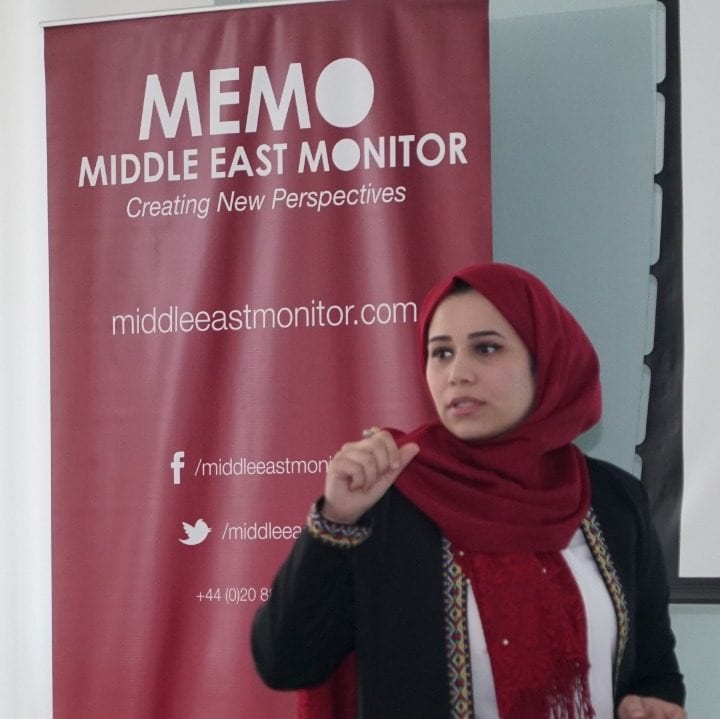Even though the Portuguese language is full of Arabic words, language is a challenge to the Arab community in Brazil. Having learnt Portuguese, many lose their ability to use their mother tongue. Safa Jubran is distinguished because she not only preserved her Arabic language and heritage, but she also worked to keep it alive. Immigrating to Brazil, she brought with her customs, traditions, culture and literature, and her delicate literary sense.
Jubran, a university professor and translator, was born in Marja’youn, southern Lebanon in 1962. There she lived for the first eight years of the Lebanese Civil War before she moved to Brazil in 1982 when she was 20.
“I had to become fluent in the language, due to the nature of my work in teaching and preparing academic research. Although I quickly adapted to the Brazilian environment, I preserved many Arab customs and traditions,” she explains.
A lover of Arabic language and literature, she enrolled in Oriental Languages department of the University of Sao Paulo. She would later go on to work as a professor at the university.
“I teach Arabic language, culture and literature in the Department of Arabic Language and Literature at the university. Through all our activities, I focus on showing the importance of Arabic language and its impact on Brazilian culture and highlight its echoes in this culture. We should remember that Arabic is the second language that contributed the formation of the Portuguese language lexicon.”
“Although the Arab presence in Brazil has an important role on shaping the Brazilian community and despite the great immigration since the end of the nineteenth century, interest in Arabic literature has not reached the levels it deserves,” she points out.
Jubran has published many academic papers and articles on linguistics, the history of sciences, Arabic manuscripts and translation. She also translates many Arabic literary books from Arabic into Portuguese. Her translations include Miramar by Naguib Mahfouz, Season of Migration to the North by Tayeb Salih, Gate of the Sun by Elias Khoury, Sunset Call by Gamal Al-Ghitani, The Night Mail by Hoda Barakat and Mahmoud Darwish’s Memory for Forgetfulness.
She has also translated some Brazilian literature into Arabic, such as Two Brothers (Dois Irmãos) by Milton Hatoum and From Exile to Homeland (selections from Brazilian literature).
READ: Palestinian’s game immortalises father’s struggle against the occupation
“My interest in Arabic literature increased and I have never stopped reading. As for translation, it came as a result of my profession and my great desire to make Brazilians aware of the richness and beauty of Arabic literature.”
Her translations have won her a large number of honours and awards including in 2014 when Jubran received the Brazilian National Academy of Letters Award (Academia Brasileira de Letras) for her translation of Friendly Fire by Alaa Al Aswany .In 2019, she won the Sheikh Hamad Award for Translation and International Understanding in the Best Translation from Arabic to Portuguese category. The award represented the culmination of years of hard work in the field of Arabic translations and recognises the work of translators who help new readers around the world learn about Arabic literature. This year she is one of five judges at the International Prize for Arabic Fiction (IPAF), the most prestigious literary prize in the Arab world.
Now, as Brazil opens up more to the Arab world and with the spread of the media, Jubran can see her efforts paying off. “I can now see where our effort for nearly 30 years has already started to bear fruit. Our translated works became available to the general public after they were only available for academics.”
This, she says, is her weapon for achieving her mission in spreading Arabic literature, ensuring its access to the reader and to strengthening cultural and literary relations between the Arab world and Brazil.
“This goal can only be achieved through translation. How can we accommodate others without translation?” Jubran asks.


![Safa Jubran, a university professor and translator [Safa Jubran]](https://i0.wp.com/www.middleeastmonitor.com/wp-content/uploads/2021/10/1.jpg?fit=1200%2C800&ssl=1)















